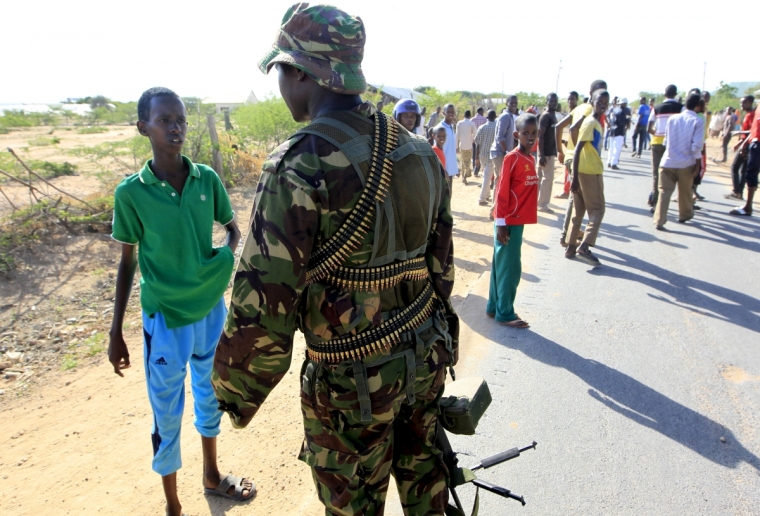Kenyans would 'rather meet Jesus than live in fear,' missionary says

TIGONI, Kenya (Christian Examiner) -- Tragedies like the murder of 147 students at Garissa University at the hands of Al-Shabaab terrorists would cast a long shadow over life in the western world, but East Africans have a different worldview, the principal of the Kenya Baptist Theological College told Christian Examiner.
"East African culture has a saying, 'Shauri la Mungu,' or 'the way of God.' This means what happens, happens. It is very quickly in the past, so leave it behind. This appears to be a very resilient side to our society," said Jack Yates, a missionary who has worked among Kenya's Baptists for many years.
And while Yates says he has no way of knowing the depths of the hidden pain in the lives of those affected by the terror attack, he said Kenyans are not likely to show it.
"They are overwhelmingly forgiving. Their lives are difficult by American standards but they face each day as if the whole world is looking at them. They have incredible pride and a desire to appear satisfied, happy and interested in the person looking at them," Yates said.
When confronted with circumstances like the attack in Garissa, the attack on the Westgate Mall in Nairobi in 2013 which killed 67, or even Al-Shabaab's murder of the Baptist college's former principal, Enos Nambafu Weswah, last year, Yates said Kenya's Christians will seek to redeem the situation for good.
"Kenyans are very forgiving," Yates said. "The leadership has promoted and encouraged praying for our enemies, doing good for those who harm you, and remembering that God is using every event for his purpose."
This means, according to Yates, stepping into areas where terrorists are known to operate, all the while trusting in God for protection. It also means turning the other cheek on a personal level.
"We just experienced wonderful Easter services all over Kenya, heavily attended, and fearlessly, only three days after Garissa," Yates said. "There is anger at such outrages, but there has been almost no retaliation."
Christian-Muslim relationships in Kenya have been strained by the three-year campaign of violence launched by Al-Shabaab to drive Christians off lands the terror group considers as belonging to Muslims. Those regions, on the border with Somalia and on the coast, are where the majority of Kenya's Muslims live.
Kenya is 83 percent Christian. Only 11 percent of the country's population is Muslim. In centers like Mombasa, the country's oldest and largest port city, there are many mosques, but also Christian education centers and cathedrals. Most often, the people of the two faiths live in peace with one another, in spite of allegations from Muslims of oppression and the government's favoritism toward Christian causes.
It is in this context that Al-Shabaab seeks to stoke division in the society in order to expand Islamic territory from the horn of Africa to the West. Christians understand this will likely mean more large-scale terror attacks in the future, Yates said.
According to Yates, Kenyan Christians are ready to confront the challenge.
"No one considers tomorrow in our cultural context," Yates said. "If it comes, it comes. We are a very capitalistic society and Kenyans go where there are jobs or where they are assigned (such as the students at Garissa University). Kenyans are smart, trusting folk. Usually when a disaster happens, everyone runs toward it, not away."
"If you listen to Kenyan Christians, they will tell you that to meet Jesus is far better than living in fear and suspicion. They are a very New Testament folk," Yates said.
RELATED STORIES:
Missionary: School massacre 'just another' of evil acts in Kenya
Al-Shabaab declares kenya massacre part of Islamic war on Christians
Power of hatred and violence will not prevail: Kenyan president